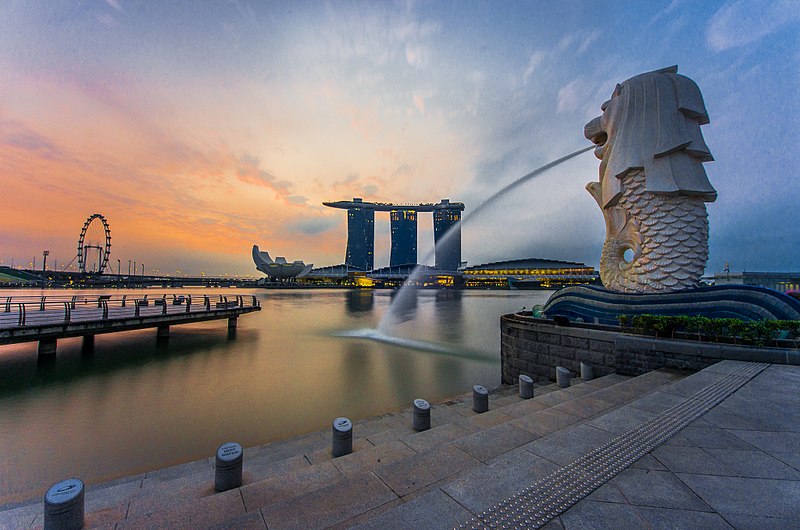MSc Development Studies alum Alejandra Padin-Dujon explores the links between the Caribbean banana trade and tourism industry, and the colonial legacies embedded within them.
this sh*t is bananas, B-A-N-A-N-A-S — Gwen Stefani, ‘Hollaback Girl’ (2004)
So in the immortal words of Gwen Stefani in “Hollaback Girl” (2004) – so, too, in the European Union’s fateful shift away from a banana import quota as the culmination of the Banana Trade Wars, with disproportionate impact on African, Caribbean, and Pacific (ACP) countries (2006). This is the “bananas” story of bananas (“green gold”) in the Caribbean – a thread from the pre-independence era to the “new plantation” of tourism. The resolution to the trade war between the US and the EU would have wide-reaching consequences for Caribbean island nations, spurring a decisive shift toward tourism-based economies – and all the associated fragilities.
Once again, I am indebted to an excellent panel (“Climate Justice in the Caribbean: Colonialism & the Climate Crisis”) convened by the young Caribbean women leaders at GirlsCARE, an ecofeminist mentorship program. Special thanks to panellists Ms. Laverne Brookes (St. Kitts and Nevis), Ms. Sarah Penney (British Virgin Islands), and Dr. Keston Perry (Jamaica) for providing inspiration.
Independence and bananas
It is no exaggeration to say that banana production fueled many Anglophone Caribbean islands’ independence from Britain in the mid to late 20th century. As Anthony Payne writes in “The End of Green Gold? Comparative Development Options and Strategies in the Eastern Caribbean Banana-Producing Islands”:
Bananas were the basis of the political economy of Dominica, St. Lucia, and St. Vincent during the 40 or so years from their establishment as a crop in the 1950s to the beginning of their decline in the 1990s… They contributed substantially to the economic growth that, in turn, underpinned the move to political independence… in the late 1970s.
Banana production dominated the economies and economic growth of these small Eastern Caribbean islands until the beginning of the Banana Trade Wars, when protectionist European policies that propped up trade in Caribbean bananas became increasingly unpopular with the United States. The US filed a complaint with the World Trade Organization on the basis that such an agreement – dating back to the 1970s Lomé accords, to promote trade with ex-colonies – violated the principles of free trade. In 1997, the US won its case. 2006 marked the final nail in the coffin for Caribbean banana exporters, as this heralded the end of preferential access to the EU banana market.
Toward tourism
To this day, banana production remains a staple in small Caribbean island nations like St. Lucia, where banana plants and their blue plastic covers can be seen lining the roads. However, the contraction in the Caribbean banana market – St. Lucia saw a decrease in banana export earnings from US$78.5 million (1992) to US$13.7 million (2001) – forced national governments’ hands.
Facing development options that were “narrow in the extreme”, national governments sought refuge in tourism. This choice was compelling as the islands’ small size inhibits the development of indigenous industry and necessitates engagement in trade.
The “new plantation”?
Nonetheless, in the GirlsCARE panel “Climate Justice in the Caribbean,” lecturer Ms. Laverne Brooks delivered a searing indictment of the links between colonialism, environmental destruction, and tourism. Her remarks included the assertion that “tourism is the new plantation.” In a region with a devastating history of slavery and post-slavery colonialism, this powerful declaration carries significant political and emotional weight. In what sense is the accusation true?
The major way in which tourism resembles plantation life is the unequal benefits afforded by foreign (largely white) and domestic (largely Black) involvement in the hotel business and other facets of the tourism industry. While hotel owners and patrons typically come from the Global North, hotel workers (and those in adjacent domestic industries) are local. Though the labor is paid, this creates a distinctly inequitable – even servile – relationship.
Beyond the demographic picture of tourism, there is a geopolitical and global economic dynamic reminiscent of the colonial period. Economic dependency on tourism recreates core-periphery (i.e., colonial-colonized) extractive relationships through which resources in the Caribbean are spirited away to European, American, or Canadian lands while the preponderance of the labor is performed by Caribbean workers.
Moreover, the ceiling on tourism-based economic growth for Caribbean island nations reinforces the subservient position of Caribbean nations in the global economic pecking order. As it stands, tourism is – somewhat counterintuitively – both selectively beneficial to the Caribbean and a zero-sum game between the white North and the Black South: while everyone profits, the North’s disproportionate profits increase as the South is economically marginalized within its own industry.
Structural vulnerabilities
Several structural vulnerabilities compromise the soundness of tourism as a basis for Caribbean economic welfare. These include meteorological threats as well as vulnerability to global economic shocks. Hurricanes regularly devastate the Eastern Caribbean, while global economic downturns (including the COVID-19 pandemic) severely inhibit luxury travel. The adverse impacts of climate disasters are compounded by subsequent drops in tourism funds available for reconstruction or pre-emptive adaptation planning. Finally, tourism compromises environmental integrity by overuse of scarce freshwater resources and environmental degradation for the construction of luxury resorts. The physical, economic, and environmental resilience of Caribbean islands are, then, each threatened by over-reliance on tourism.
W(h)ither the Caribbean?
The future direction for Caribbean sustainable development planning is unclear. The COVID-19 pandemic has highlighted the fragility of tourism-based economies and dug the hole of Caribbean sovereign debt even deeper (Antigua and Barbuda’s most recent figures hover at around 90% of GDP). This may spur investment in green development as an avenue for economic advancement. Alternatively, the Caribbean may remain trapped in a globally and domestically subservient position to the former colonizer, or people and governments might find third options. Regardless, as hurricanes, tropical storms, droughts, and other calamities increase in frequency and intensity, it becomes clear that the Caribbean tourism industry of today faces a similar choice to the Caribbean banana industry of 20 years ago: adapt or die.
The views expressed in this post are those of the author and in no way reflect those of the International Development LSE blog or the London School of Economics and Political Science. This article first appeared in Ale in Antigua as “This ish is bananas! (B-A-N-A-N-A-S)“. Photo credit: Brian Snelson on Flickr.





